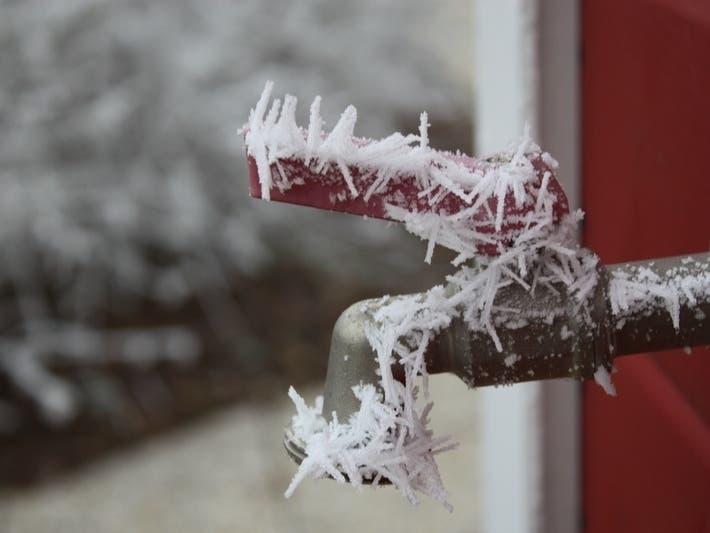Home & Garden
How To Prevent, Thaw Frozen Pipes In Your Edina Home
As temperatures drop in Edina this winter, a little preparation can spare your pipes from freezing.

EDINA, MN — As temperatures drop and Edina gets its first big snowstorm of the winter, it’s time to start planning if you want to avoid what is arguably one of the biggest cold-weather headaches: frozen pipes.
Frozen water pipes are no joke. Water expands when frozen, which puts massive pressure on pipes and can cause them to burst. Not only is this messy, but it can be expensive to fix.
However, a little planning can save you a lot of pain in the long run.
Find out what's happening in Edinawith free, real-time updates from Patch.
The most common causes of frozen pipes tend to be quick drops in temperature, poor insulation and thermostats set too low for conditions.
Luckily, you can take a number of preventative steps to keep pipes from freezing. Consumer Reports has offered these tips to prevent freezing pipes this winter:
Find out what's happening in Edinawith free, real-time updates from Patch.
- Keep garage doors closed: Water supply lines in the garage can be protected from the cold with the doors closed.
- Keep cabinet doors open: Allow warmer air to circulate around the plumbing.
- Let cold water drip: Running water through a pipe helps prevent it from freezing.
- Keep temperatures the same: Keep the thermostat set to the same temperature during the day and night.
- Set it to 55 degrees F: When leaving home for a significant period, set the thermostat to no lower than 55 degrees F.
- Insulate: Add insulation to attics, basements and crawl spaces. Insulation will help maintain higher temperatures in those areas.
If pipes do freeze:
- If your house or basement is flooding, turn off the water valve to the house and immediately call 911.
- If you turn on your faucets and nothing comes out, leave the faucets turned on and call a plumber.
- Do not touch or use electrical appliances in areas of standing water, because of the danger of electrocution.
- Never try to thaw a pipe with a torch or other open flame, because it could pose a fire hazard. Every year, many building fires are caused by people trying to thaw frozen pipes. All open flames in homes present a serious fire danger, as well as a severe risk of exposure to lethal carbon monoxide.
- You may be able to thaw a frozen pipe with the warm air from a hair dryer. Start by warming the pipe as close to the faucet as possible, working toward the coldest section of the pipe. DO NOT use a blow torch or any other open flame to try to thaw out potentially frozen pipes.
If a pipe bursts, try these tips from AAA Mid-Atlantic to file and manage insurance claims:
- Make a list of the damaged articles and take photos.
- Save the receipts for what you spend — including additional living expenses if you must leave your home until repairs are completed — and submit them to your insurance company for reimbursement.
- Standard homeowner policies will cover most of the kinds of damage that result from a freeze. These include, for example, if house pipes freeze and burst or if ice forms in gutters and causes water to back up under roof shingles and seep into the house. You would also be covered if the weight of snow or ice damages your house.
- If your home sustains water damage, it is important to make sure that it is properly dried and repaired to prevent any potential problem with mold. Remember, mold cannot survive without moisture.
- Check with your agent or insurance company so you will be sure what your policy covers.
Get more local news delivered straight to your inbox. Sign up for free Patch newsletters and alerts.